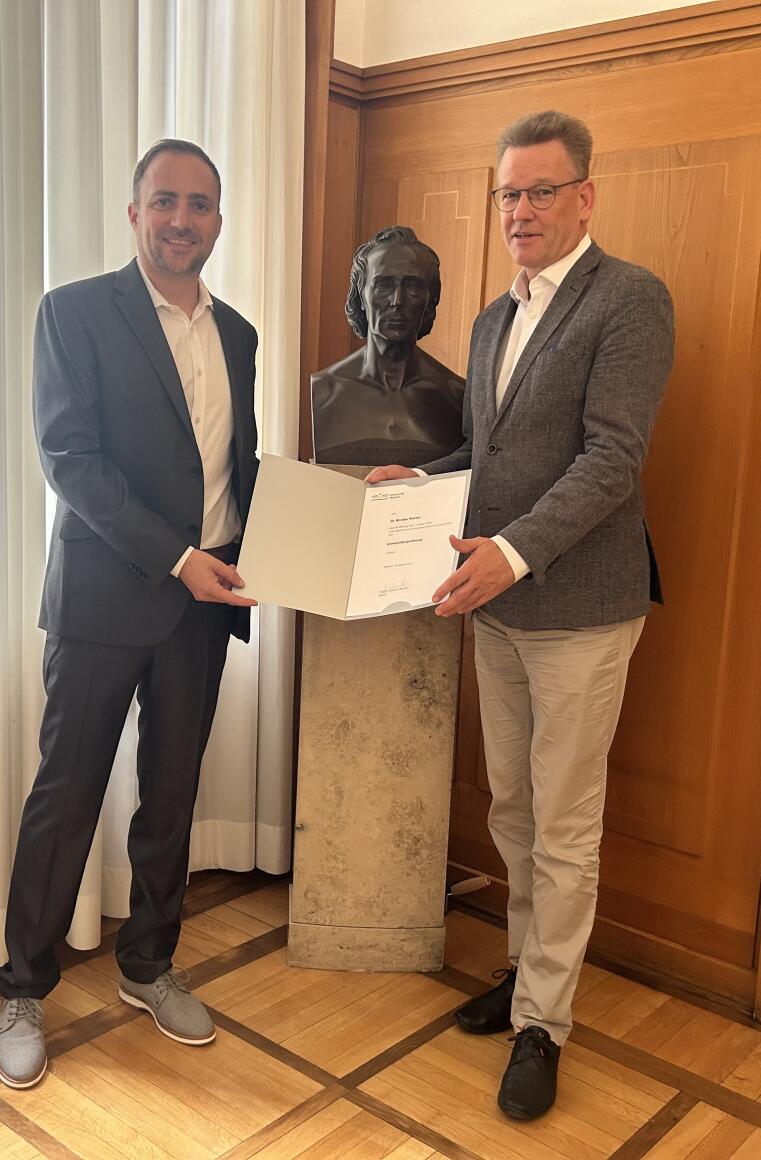Introduction of Prof. Dr. Nicolas Rohner

The University of Münster is pleased to welcome Prof. Dr. Nicolas Rohner as a new professor of animal physiology. With his many years of international experience and extensive expertise in researching adaptation mechanisms to extreme environmental conditions, Prof. Rohner will enrich the institute with innovative impulses.
His research group uses the Mexican cave fish Astyanax mexicanus as a model organism to investigate starvation resistance and evolutionary resilience to obesity and diabetes. This model allows the study of evolutionary mechanisms that shed light on how organisms can survive and adapt to extreme environmental conditions. Prof. Rohner's innovative research program is based on the idea of learning from nature to find answers to modern medical and physiological challenges.
Dr. Rohner received his doctorate at the Max Planck Institute in Tübingen under Dr. Christiane Nüsslein-Volhard, who received the Nobel Prize in 1995 for her research on the genetic control of embryonic development in animals. Her further work played a key role in establishing the zebrafish as an important model organism in genetics and developmental biology. Dr. Rohner began his research on fish there and deepened this expertise at Harvard Medical School, where he worked with Dr. Cliff Tabin from 2010 to 2015. During this time, he also began using the cavefish as a model organism and further established this model in his laboratory at the Stowers Institute for Medical Research in Kansas City, USA, which he has headed since 2015.
Dr. Rohner works closely with international research teams to understand the genetic basis of adaptation mechanisms. He pursues an interdisciplinary approach that combines evolutionary principles with modern genetic methods to gain new insights into physiological and medical questions. His work is of great importance for the fields of evolutionary biology, genetics and metabolic physiology and offers important insights into the adaptation mechanisms of organisms to extreme environmental conditions.
With his appointment as Professor of Animal Physiology, Prof. Rohner brings not only his research expertise but also a strong commitment to teaching to inspire and train the next generation of scientists.

